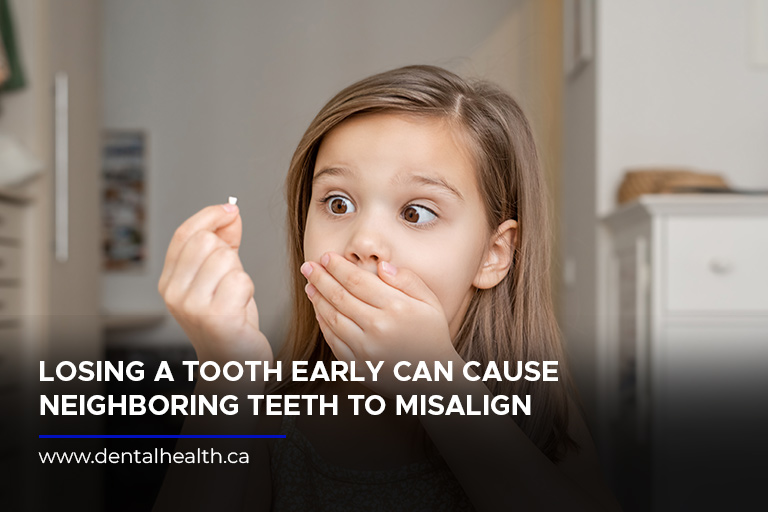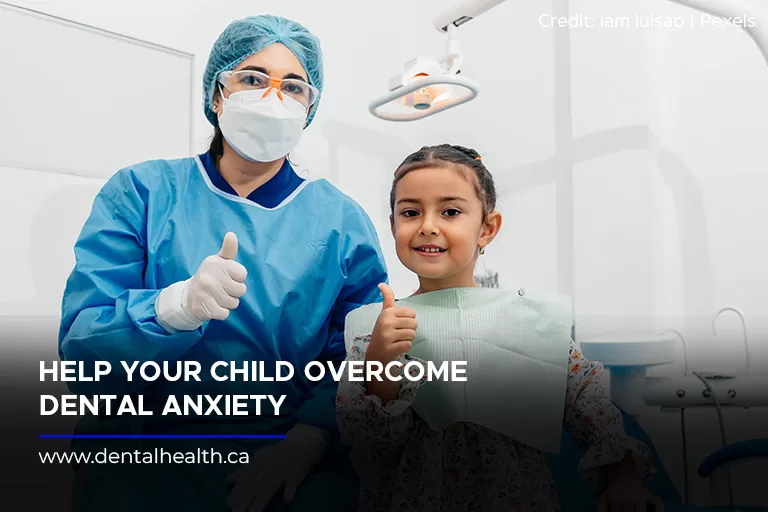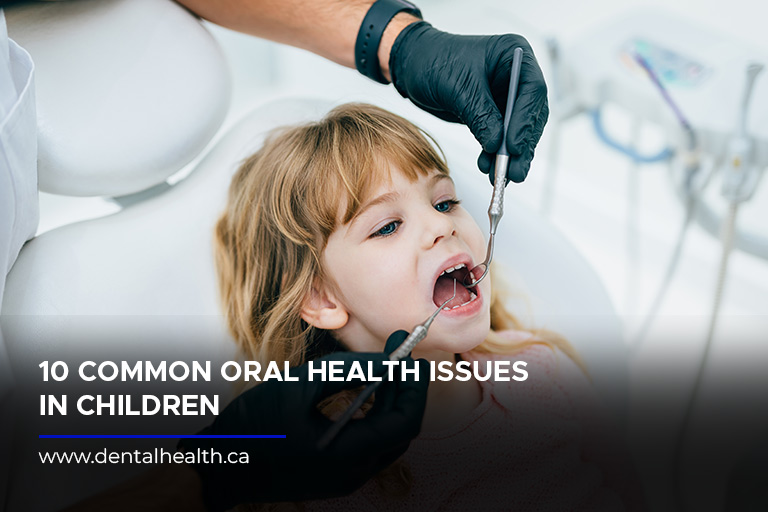In Canada, approximately 2.26 million school days are lost annually due to dental-related illnesses, and tooth decay accounts for one-third of all-day surgeries for children between 1 and 5. As a responsible parent, it is crucial to prioritize your children’s oral health. Part of your job is to consult a reliable dentist in Grimsby to ensure their oral health is in good condition.
By understanding children’s oral health needs and recognizing common dental problems, you can take proactive measures to prevent them. In this blog post, we’ll explore these common dental issues in children and provide practical tips to help your child maintain optimal oral health.
1. Thumb Sucking
Thumb sucking is a common behaviour in infants. This habit can cause dental problems if it persists beyond age 5, when permanent teeth emerge, causing them to protrude and create an overbite. It may also affect speech development and lead to misalignment of the upper and lower jaws and the roof of the mouth.
Help your child break the habit through positive reinforcement from you and other family members. It works better than negative reinforcement, like scolding or punishment.
2. Tongue Thrusting
Tongue thrusting is a habit where the top of the tongue pushes forward against the lips when swallowing instead of sealing the mouth naturally. Like thumb sucking, this habit can cause your child’s front teeth to go out of alignment, resulting in protrusion and overbite.
If you observe signs of tongue thrusting in your child, it is advisable to consult a speech pathologist. Their treatment plans will strengthen the chewing muscles and help your child develop a proper swallowing pattern.
3. Tooth Sensitivity
Sensitive teeth can often disrupt children’s focus and daily routines. Cavities, newly erupted permanent teeth, acid erosion, enamel wear, teeth grinding (bruxism), a cracked or missing filling, or orthodontic treatment can cause tooth sensitivity.
If your child experiences tooth sensitivity, various treatments are available to alleviate pain and discomfort. It is also crucial to identify the underlying cause of the sensitivity. If it is related to a dental issue, visiting a local dental clinic is advisable to prevent the problem from worsening.
A pediatric dentist can recommend suitable tooth sensitivity treatments, including desensitizing toothpaste, fluoride treatments, dental sealants, or dental restorations like fillings or bonding. Also, encourage your child to practice good oral hygiene habits, such as using a soft-bristled toothbrush and avoiding acidic foods and drinks, to manage tooth sensitivity.
4. Tooth Decay (Cavities)
The combination of a sugar-heavy diet and cavities can become a major problem. The acid present in plaque gradually erodes the protective enamel, leading to tooth decay.
Until your child can handle a toothbrush independently, supervise and assist them with brushing. Ensuring your little one effectively removes plaque, bacteria, and food particles from their teeth daily is essential for preventing early tooth decay.
Timely dental intervention can prevent further damage and restore the strength and function of the tooth, so scheduling a visit to a dentist’s office is recommended. Routine dental check-ups enable early detection of cavities and allow for timely treatment.
5. Early Tooth Loss

Early loss of baby teeth can occur due to tooth decay, injury, or insufficient jaw space. When teeth are lost before the permanent teeth have a chance to emerge, the neighbouring teeth may shift or tilt. This creates a potential lack of room for the incoming permanent tooth. As a result, the new tooth may emerge in a tilted or misaligned position.
Crooked or misaligned teeth can give rise to various issues, ranging from difficulties with proper chewing to potential problems with the temporomandibular joint.
By seeking prompt dental treatment and following the advice of a dentist for kids, you can help prevent premature tooth loss from causing future issues.
6. Gingivitis and Gum Disease
Most people associate gum diseases with adults, but children can also suffer from these conditions. Gingivitis, a precursor to gum disease, is quite common in pediatric dental patients.
Gum disease can be more aggressive in children with poor oral hygiene habits. It often presents with symptoms such as mouth pain, gum recession, and areas of swelling. Gingivitis and gum disease could have been prevented with proper daily brushing and flossing. However, there are instances where your child’s teeth may grow crooked or crowded. This makes it challenging for them to clean their teeth effectively, leading to areas of gingivitis or gum disease.
To safeguard your child’s oral health, it is crucial to prioritize daily oral hygiene practices. Encourage your child to brush their teeth thoroughly and floss regularly. Regular dental check-ups and cleanings are also vital for early detection and intervention of gum problems.
7. Dental Anxiety

The key to addressing dental anxiety in children is to create a relaxed, fun, and enjoyable dental experience. Start by finding a dentist who specializes in working with anxious kids. A dental professional experienced in pediatric care has effective strategies to help them feel at ease.
In addition to choosing the right dentist, teaching your children about the importance of dental care from an early age is essential. Make oral hygiene a regular part of their daily routine.
You can incorporate interactive elements into their dentist appointments, such as educational games and child-friendly explanations of procedures.
8. Teeth Grinding
Children grinding or clenching teeth during sleep can be a concerning habit. You should consult a pediatrician if your child clenches or grinds their teeth along with symptoms such as snoring, choking sounds, gasping for breath, and disrupted sleep quality.
If you suspect your child is grinding their teeth, it is advisable to schedule a dental examination as well. Your family dentist can assess the extent of tooth wear, evaluate the overall oral health, and provide guidance on managing teeth grinding.
9. Bad Breath
Bad breath, also known as halitosis, can affect individuals of all ages, including children. It is normal to have bad breath occasionally after eating pungent foods, but chronic bad breath may indicate a deeper problem.
The most common culprits behind halitosis in children are gum problems, poor oral hygiene, and dry mouth. However, other conditions like chronic sinusitis, diabetes, tooth decay, and digestive issues can also contribute to bad breath.
Proper dental hygiene is crucial for treating and preventing bad breath in children. Aside from brushing and flossing, using an antibacterial mouthwash may help reduce unpleasant odours. Dental check-ups are also essential to identify any underlying oral health issues contributing to this condition.
10. Dental Emergency
Children can experience dental emergencies anytime, especially when playing sports, playing with siblings, or falling. These incidents can result in teeth chipping, breaking, or cracking. Permanent teeth may be completely knocked out in more severe cases.
If your child experiences the loss of a permanent tooth, it is crucial to take immediate action. Contact your dentist for an emergency appointment while retrieving the tooth.
It is important to note that different dental emergencies may require specific actions. For other dental issues, such as chipped or broken teeth, contact your emergency dentist immediately for guidance and to schedule an appointment.
Preparing for dental emergencies is also beneficial. Encourage your child to wear appropriate protective gear during sports activities, and educate them about the importance of being cautious during play.
Stay on Top of Your Child’s Dental Health, Visit a Trusted Dentist in Grimsby
Ensuring your children’s oral health is essential for their overall well-being. You can protect your child’s precious smile by addressing common dental issues. Regular dental check-ups, proper oral hygiene practices, and professional guidance are the key to preventing and addressing these concerns.
Make your children’s oral health a priority and prevent and address dental problems early. Start by finding trusted dentists in Grimsby, like Kingsway Family Dentistry—giving you and your family quality dental care.
With our dentists, you can avoid potential problems and give your children proper oral care. Call our Beamsville dental office at (905) 563-4001 or email us at dramita@dentalhealth.ca.

